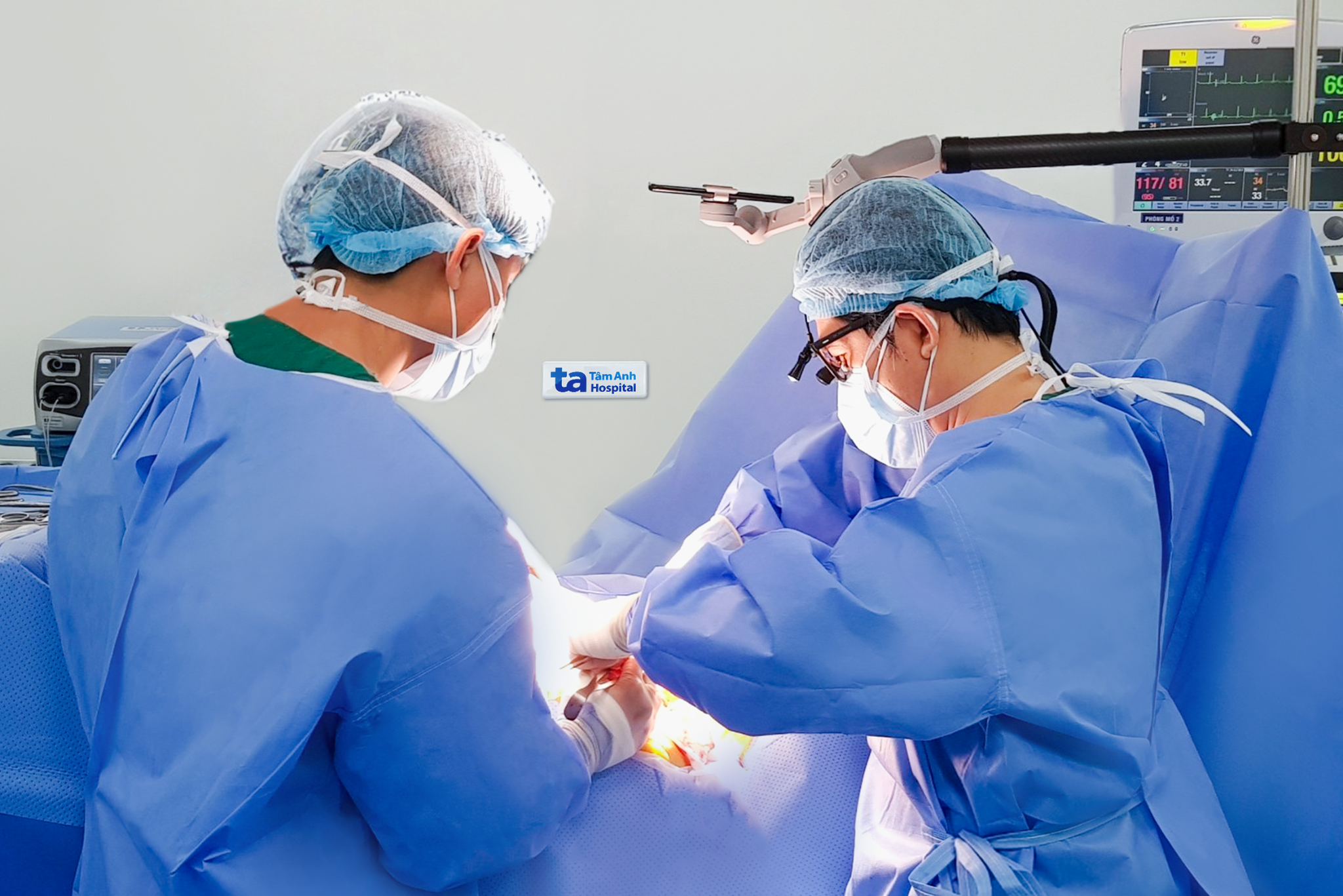Two years ago, Tan discovered a small, benign nodule on the right lobe of his thyroid gland. He underwent regular check-ups, including a fine-needle aspiration (FNA) biopsy 6 months ago, which confirmed the nodule's benign nature. However, during a recent examination at Tam Anh General Hospital in Ho Chi Minh City in early August, an ultrasound revealed a TIRADS 4 classification, indicating a suspicious thyroid lesion.
On 21/8, Dr. Nguyen Anh Dung, Head of the Thoracic - Vascular Surgery Department, reported that although the nodule was less than 1 cm in size, an FNA biopsy confirmed a diagnosis of papillary thyroid cancer. The nodule's growth of just over 1 mm since its initial discovery suggested slow development. However, the positive FNA result necessitated surgery to remove the nodule and cancerous cells.
While most thyroid nodules are benign, approximately 5% become malignant. Some initially benign nodules can later be diagnosed as cancerous. According to Dr. Dung, there are three possible explanations for this. First, the initial thyroid ultrasound might not meet the criteria for a malignant diagnosis based on the TIRADS classification (a 6-level scale with higher numbers indicating greater malignancy risk). Sometimes, a nodule might be classified as TIRADS 2, 3, or 4, while actually being a 5 or 6. This can lead patients to believe their nodule is benign and requires no treatment, allowing it to progress undetected until a cancer diagnosis is finally made. Second, a TIRADS 2 or 3 nodule can evolve over time into a 5 or 6, indicating a shift from benign to malignant. Third, the initial FNA biopsy might miss the cancerous cells, leading to a false negative result.
Dr. Dung explained that Tan's slow-growing nodule and two initial negative FNA results suggested it was initially benign. However, the nodule changed over two years, resulting in the positive FNA. As the small nodule was contained within the right thyroid lobe without capsular invasion, surgeons removed only that lobe, preserving the other and avoiding complications like hoarseness, voice loss, or hand numbness. Tan was discharged after three days, not requiring further radioactive iodine therapy or radiation, as all cancerous cells were removed.
 |
Surgeons removed the affected thyroid lobe. Photo: Ha Vu |
Surgeons removed the affected thyroid lobe. Photo: Ha Vu
Dr. Le Thi Ngoc Hang from the Thoracic - Vascular Surgery Department at Tam Anh General Hospital, Ho Chi Minh City, highlighted the various modern diagnostic methods for thyroid nodules. These include thyroid hormone tests (FT3, FT4), thyroid-stimulating hormone (TSH) tests, ultrasound, FNA biopsy, elastography, MRI, CT scans, and FDG-PET/CT scans. In some cases, genetic testing and immunohistochemical markers may also be used.
Treatment for benign thyroid nodules depends on their size and invasiveness, ranging from radioactive iodine therapy and surgery to watchful waiting. For thyroid cancer, if the nodule is contained within a lobe without capsular invasion, only that lobe needs removal. However, if the nodule has spread, a total thyroidectomy is necessary.
According to Dr. Dung, open surgery is the most common method for removing cancerous thyroid nodules. Minimally invasive techniques, such as transaxillary or transoral endoscopic thyroidectomy, are sometimes possible. However, these approaches have limitations due to the confined space of the thyroid area and the reduced flexibility of endoscopic instruments, making precise surgical maneuvers challenging. Tam Anh General Hospital will soon implement robotic thyroid surgery using the Da Vinci Xi system for easier nodule dissection.
Thyroid nodules are a common condition. Regular 6-month health check-ups facilitate early detection and timely treatment. Individuals with a history of thyroid nodules should adhere to their follow-up appointments for monitoring.
Thu Ha
*The patient's name has been changed.
| At 8 PM on 21/8, Tam Anh General Hospital system will host an online consultation program: "Thyroid Cancer: New Screening and Treatment Technologies," broadcast on the hospital's Facebook page and VnExpress. The consultation will feature Dr. Nguyen Anh Dung, Head of the Thoracic - Vascular Surgery Department; Dr. Tran Nguyen Quynh Tram, Deputy Head of the Endocrinology - Diabetes Department; and Dr. Le Thi Ngoc Hang from the Thoracic - Vascular Surgery Department. Readers can submit their questions here for answers during the program. |












